Ancestor Worship
He made it clear that the phenomenon is far more complex than the stereotyped image of non-Western peoples burning joss sticks before portraits of their grandfathers, although that’s certainly one expression of ancestor worship. The fact is, ancestor worship in some form appears to be ingrained in humankind throughout history and across all cultures.
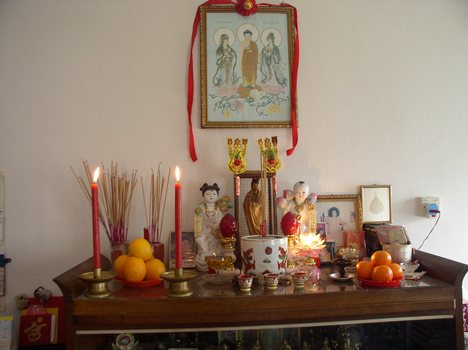
|
Keep in mind that “worship” is a term covering a very broad range of behaviors, ranging from outright religious intensity through varying degrees of devotion to simply honoring. But all of these include remembering and various forms of ritual.
Our speaker was ethnic Mexican (born in the United States) and had grown up with a variety of specifically Mexican customs concerning how to behave toward the dead. One of many he mentioned was the custom of turning off car radios while driving past cemeteries, out of respect. Another, more well-known, was the annual holiday of Dia de los Muertos or Day of the Dead at the beginning of November, on which families picnic festively in cemeteries, often at night, and offer food and drink to their deceased family members (among other customs).
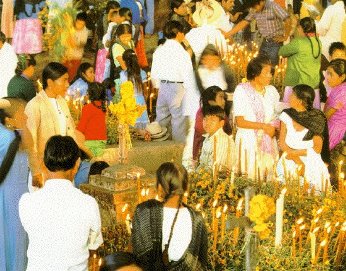
|
Day of the Dead celebration |
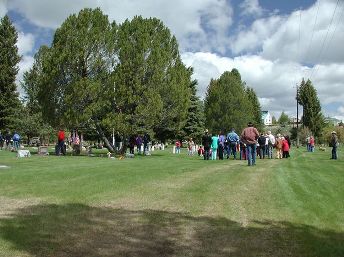
|
Memorial Day gathering in an American cemetery |
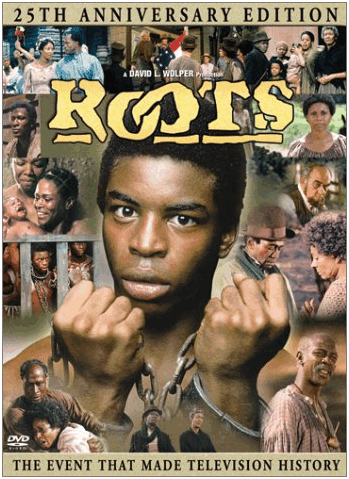
|
Roots poster |
Among my ancestors are some who were brave, hardworking, loyal, loving people. And some who owned slaves and/or killed people from motives that included avarice. Sometimes these are one and the same people. I can’t honor them without also recognizing their faults. Our heroes may have had feet of clay. That doesn’t mean they are not, for all that, still heroes. That’s part of the classical notion of human tragedy, all all-too-familiar concept. Thomas Jefferson has a temple in his honor in Washington and a huge granite carving on Mount Rushmore. He also owned slaves and fathered illegitimate children. These are not facts that cancel each other out – the tension between them is eternal. George Washington, Benjamin Franklin, Abraham Lincoln – all of our great people, people whom we “worship,” were complex, imperfect human beings who were, nonetheless, noble in very meaningful ways. Our personal ancestors, while probably not “noble” to the same degree, were similarly complex, and similarly merit our honoring – our “worship” in that sense. Remembering who they were, we learn something important about who we are.
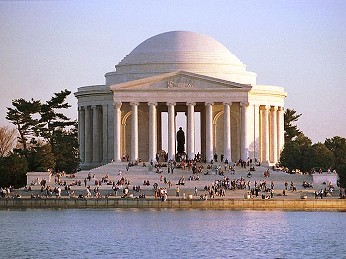
|
Jefferson Memorial in Washington DC |
So the next time you hear someone mention the practice of ancestor worship, don’t just absently dismiss the concept out of hand as ridiculous or primitive. Check it out – you may just be a participant yourself; and it’s not necessarily a stupid or ignorant thing to do.





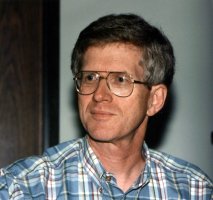
No comments:
Post a Comment